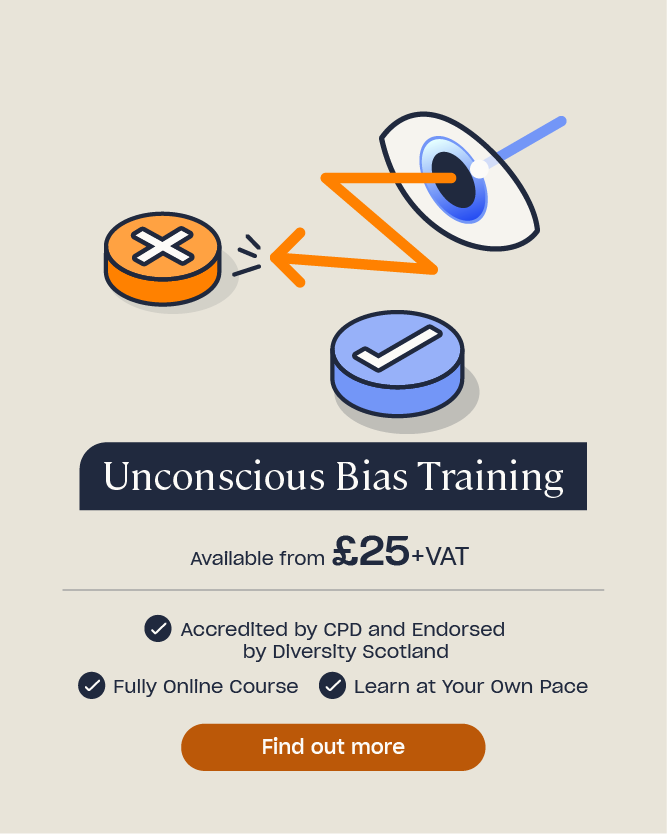How to Avoid Discrimination in Recruitment
Discrimination is the unfair and unequal treatment of a person because they possess a particular protected characteristic. In 2010, a revised Equality Act was passed to combine 116 separate pieces of legislation into a single Act. The Equality Act 2010, now the main piece of legislation regarding discrimination, ensures that individuals are protected from unfair treatment. Under the Act, you must treat everyone with fairness, dignity, and respect, regardless of any differences.
It is essential that you do not discriminate against any candidates during recruitment processes and subsequent employment. In fact, you should actively seek to avoid discrimination in recruitment.
Under the Act, you are subject to the following duties:
- You must not discriminate when deciding who to employ.
- You must not discriminate against an employee during their employment with you, such as by preventing them access to a promotion.
- You must not dismiss an employee based on their possession of a protected characteristic.
- You must prevent discrimination, harassment, and victimisation in the workplace.
- You must ensure work roles have equal opportunities for all.
You should strive to achieve equality and diversity in your workplace, and promote this as a means of working together and achieving success.
With the help of this article, you will know how to avoid discrimination in the recruitment process, and how to ensure that your business is complying with The Equality Act.
Need Unconscious Bias Training?
Discriminatory practice in recruitment is often unintentional. Our Unconscious Bias Training explains the reasons behind this and provides the skills and knowledge you need to avoid it.
The Protected Characteristics
The Equality Act outlines nine characteristics that are prohibited from being discriminated against. These are known as ‘protected characteristics’.
The characteristics are:
- Age – This refers to a person of a particular age, such as somebody who is 18 years old, or to a group of people who are in the same age group, such as people who are aged 35 and over.
- Disability – A person is considered disabled if they have a physical or mental impairment which has a substantial and long-term adverse effect on their ability to carry out normal day-to-day activities.
- Gender Reassignment – This protected characteristic applies if a person is wanting to undergo, is undergoing, or has undergone a process to reassign their sex.
- Marriage and Civil Partnership – This refers to any person who is married, whether that be to someone of the opposite sex or the same sex, or a civil partner.
- Pregnancy and Maternity – This refers to both when the woman is pregnant, and the period after she has given birth.
- Race – This characteristic covers a person’s skin colour, nationality, and ethnic or national origins.
- Religion and Belief – This includes religion and any religious and philosophical beliefs, as well as a lack of belief (known as Atheism).
- Sex – This refers to whether a person is a man or a woman.
- Sexual Orientation – This refers to a person’s sexual orientation towards people of the same sex, people of the opposite sex, or people of either sex.

During the recruitment process, it is integral that you do not discriminate against candidates based on their possession of a protected characteristic.
How to Avoid Discrimination in Recruitment
Sadly, discrimination in recruitment is a very real issue, and it is a legal requirement that you must avoid doing so. Furthermore, if you are accepting of all potential applicants, you will be much more likely to find the best person for the job.
Below is a selection of tips that you should follow to ensure you are avoiding discrimination during your recruitment process.
Decide what skills the applicant needs.
You need to be specific with the skills required for the job, so that any potential applicants can easily understand the skills and duties required. You should remain objective when selecting skills, and ensure they are easy for people from different backgrounds to fulfil. You should explain why each trait is important, and outline which skills are ‘essential’, and which are ‘desirable’.
Create the job advert.
Put simply, discriminatory advertising is against the law. It can carry hefty fines and must be avoided. Therefore, you should not include anything that could be perceived as discriminatory. You must not include language that could be seen as restrictive, such as ‘barmaid’, which suggests you are only considering female applicants. Furthermore, your advert must focus solely on the skills that are needed to perform the job. You are only permitted to mention personal characteristics, such as age, sex, and race, if they are specific requirements for the job.
Genuine Occupational Qualifications (GOQ) were introduced under the Equality Act 2010 and exist for when the nature of a particular job causes a protected characteristic to be the reason for choosing one applicant over another. For example, if the job requires the worker to be in a single-sex environment. Specifying for a protected characteristic must be necessary, not just preferable.
Select a suitable range of candidates.
When you are selecting candidates to interview, only select interviewees from CVs based on the criteria and skills that you have set. You cannot allow personal bias or stereotypes to affect which applicants you shortlist. You need to be consistent in your decision making and cannot let any protected characteristics influence your decisions.
It’s also important for you to diversify in terms of which platforms you select candidates from. This ensures you get a diverse pool of candidates and open up an opportunity for more people to apply in different ways.

Prepare for the interview.
You should carefully plan the interview and the questions you are going to ask, and ensure that your questions cannot be perceived as discriminatory. All applicants should be given an equal chance to explain why they are the best person for the job. You should ask all applicants the same questions for assessing the key criteria; however any subsequent questions following their given answers may vary.
Interview fairly and effectively.
As mentioned, you should ask the same questions when assessing essential criteria. You should not make assumptions about a candidate based on particular behaviours. For example, a candidate may not shake your hand due to respect for their culture. Consider having more than one person conducting the interview to ensure you both reach a fair decision.
Do not ask questions based on protected characteristics.
For example, you cannot ask a candidate about their health or disability until a job offer has been made, and you cannot ask a woman if she intends to have children, even if you think she may be pregnant at the time.
Offer the job objectively.
When deciding who to offer the job to, you must ensure your selection process is non-discriminatory. You should refer to the job description and focus on how the candidates’ skills and abilities match your criteria, and not on personal bias.
Record your decisions.
You should record your decisions about who you hire, and your reasons for doing so. It is always useful to have these recorded, and they can be used for training purchases in future.
Offer feedback.
You should always give clear and well-explained reasons to unsuccessful candidates as to why they were not selected. Make sure your feedback is constructive and provides them with points to work on, and explain how they performed in the interview process.

You should now feel confident in being able to avoid discrimination in recruitment. Always remember to treat everyone fairly, and only judge candidates based on their skills and abilities.
What To Read Next:
- How To Conduct A Video Interview
- Interviewing Skills Quiz
- Unconscious Bias Quiz
- Unconscious Bias Training









